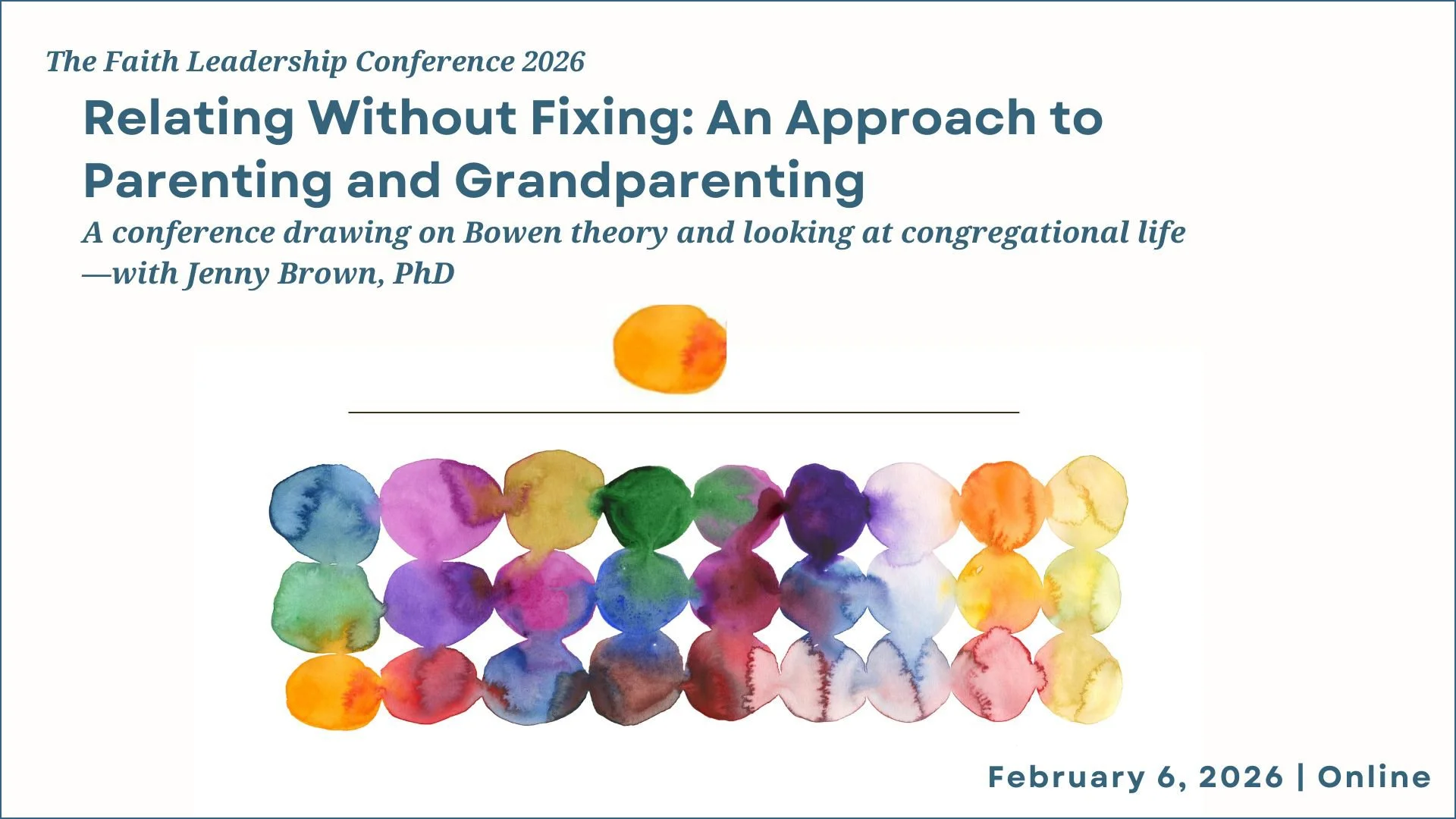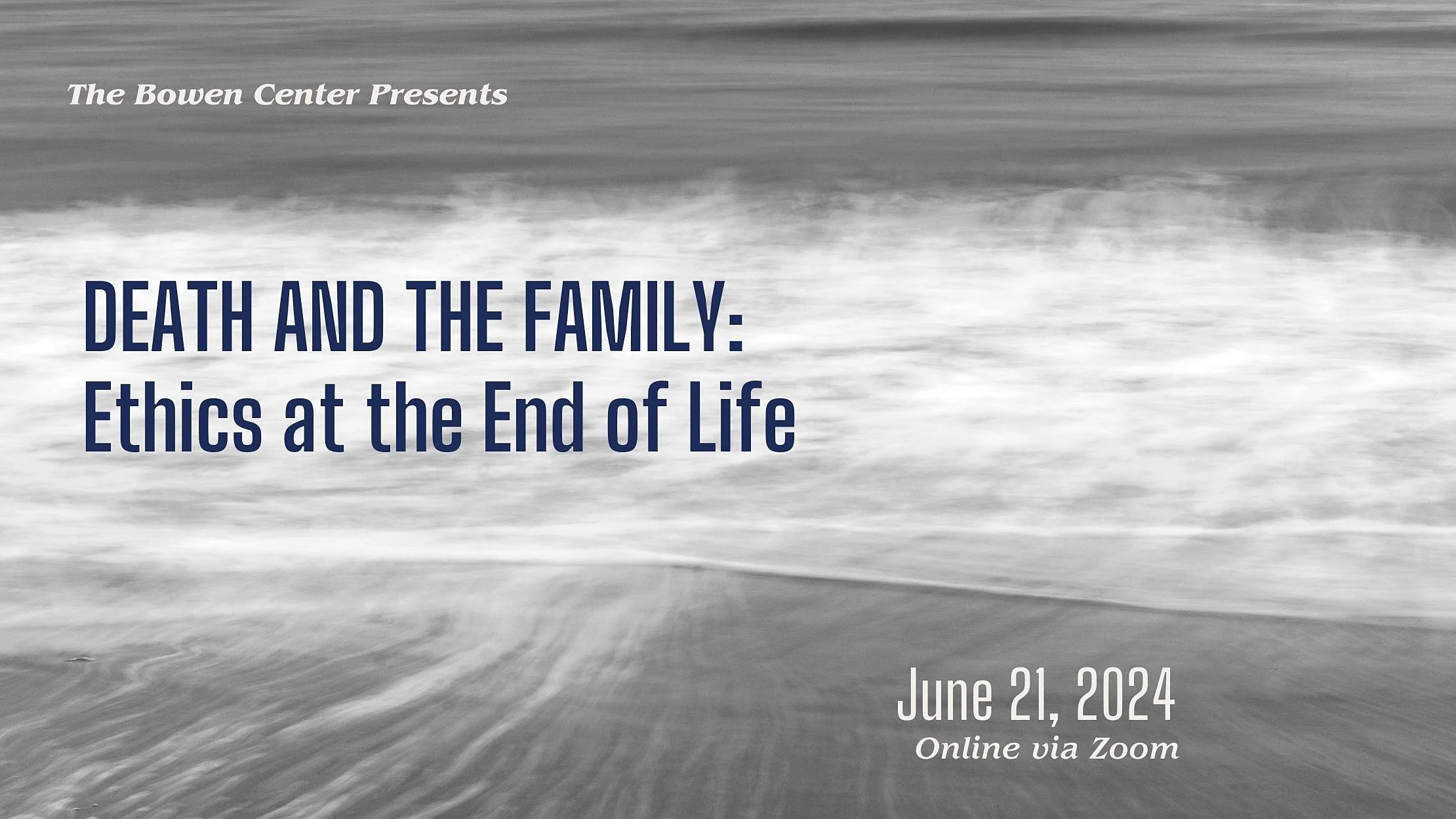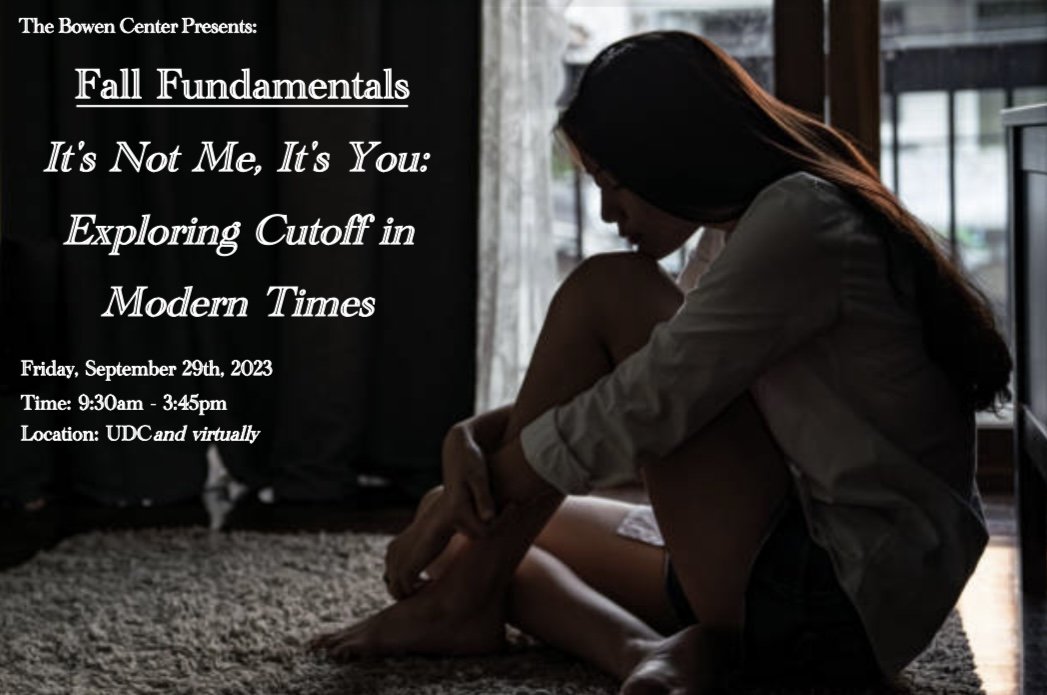
The 2026 Faith Leadership Conference
Relating Without Fixing: An Approach to Parenting and Grandparenting
February 6, 2026 10:30 am to 3:30 pm ET Online
Register now for the Bowen Center's Faith Leadership Conference in 2026!Life in a congregation is one of relationships. How are we to live in those relationships so that each person may grow into their fullness? How are we to live as peers, parents, grandparents, aunts, uncles, and as children ourselves? This conference will look at relationships with an eye towards a thoughtful presence.
We will begin the day with a brief introduction to Bowen theory, focusing especially on the relationship between generations. We will venture to traditional villages for a view of relationships and explore some of the challenges to the generations in our own culture.
Dr. Jenny Brown will join us from Australia as keynote guest speaker. Author of Growing Yourself Up: How to Bring Your Best to All of Life’s Relationships, she will draw on decades of experience in child and family mental health. Dr. Brown writes, “Bowen family systems theory offers a surprising perspective: families find more steadiness and resilience not by fixing others, but by cultivating differentiation and learning to respond thoughtfully in the face of tension.”
This conference is open to all, especially those involved in congregational life in any faith tradition, and to those who teach Bowen theory.



























